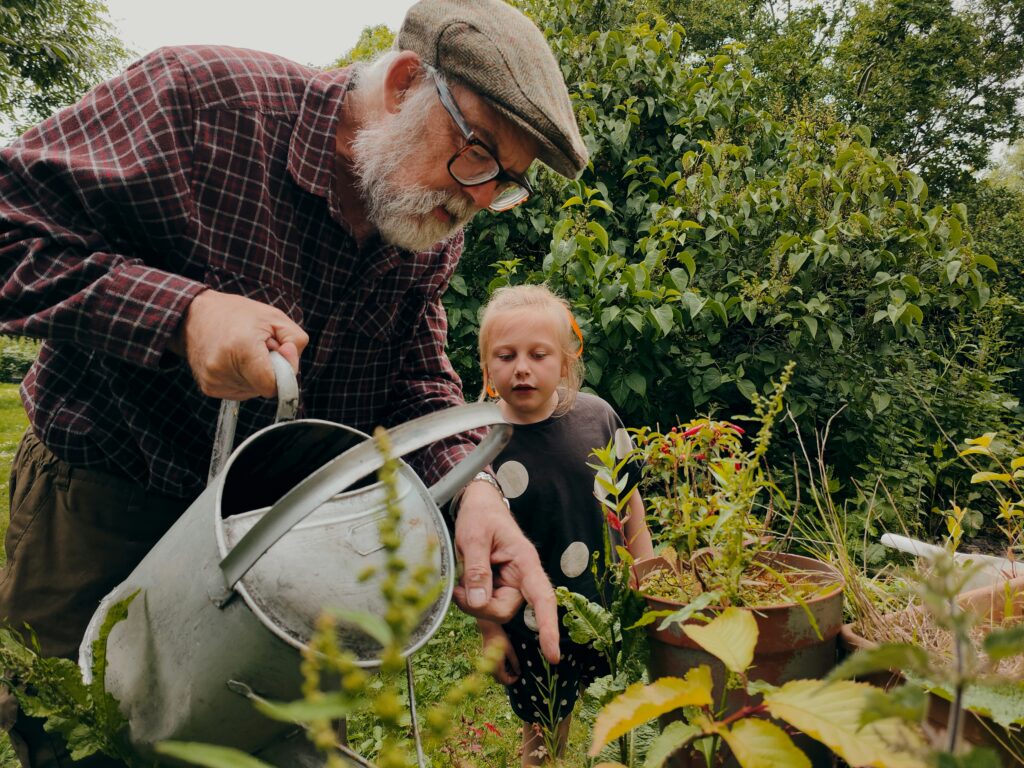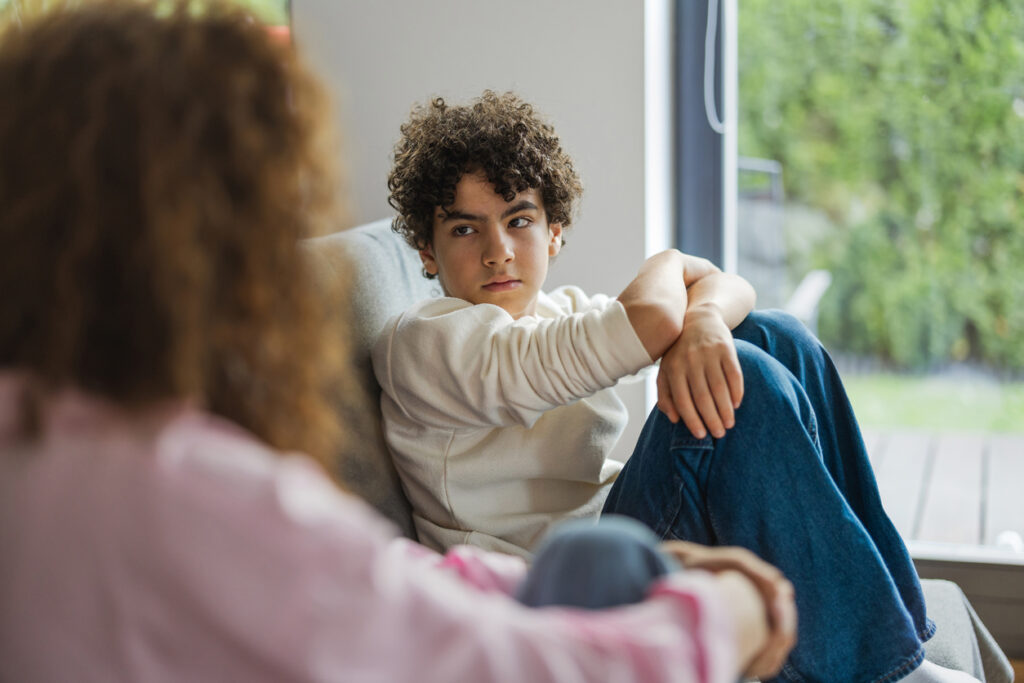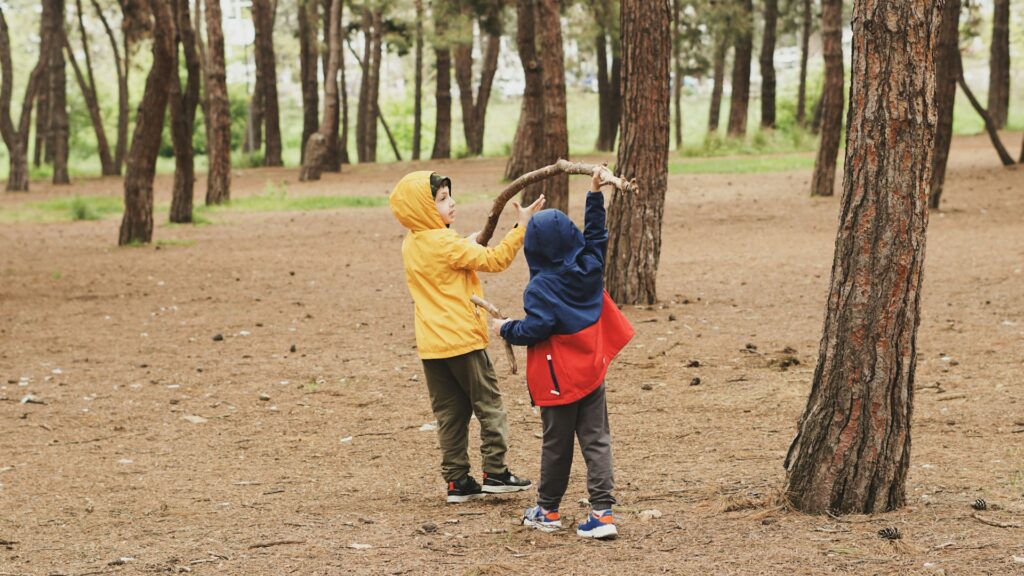In my years as a teacher, I saw firsthand the power of developing social skills to support students’ success in and out of the classroom. We gathered for meetings each morning, where we explicitly modeled, discussed, and practiced essential social skills. Together, we envisioned what a positive social interaction looks, feels, and sounds like, helping students internalize the traits of kindness, respect, and active listening. I was the facilitator of each subject—whether reading or math—guiding students through structured discussions. To help them express themselves thoughtfully and build on each other’s ideas, I provided visible sentence starters like, “I agree with (student name) because…” or “I can elaborate on (student name’s) idea…”
These exercises were not just about school discussions but about equipping children with tools to form strong, respectful relationships outside of school and in the future. Social skills lay the groundwork for lifelong connection, helping children navigate friendships, collaborate effectively, and resolve conflicts with empathy. This guide is designed to support parents in fostering these essential relationship-building skills, creating a solid foundation for their child’s future interactions and friendships.
Understanding Relationship-Building Skills
Helping children develop strong relationship-building skills is foundational for their social and emotional well-being. Empathy, effective communication, and conflict resolution skills empower children to form meaningful connections and navigate interactions with respect and confidence. Research from Developmental Psychology indicates that strong social skills are crucial for children’s adjustment in school settings and contribute significantly to their overall academic success. This underscores the importance of fostering these skills early on, as they lay the groundwork for healthy peer relationships and positive interactions throughout life. Relationship-building skills involve understanding others’ perspectives, expressing oneself clearly, and creating a safe space for open, honest communication.
- Empathy is the ability to recognize and understand the feelings of others, which plays a huge role in developing meaningful friendships. Children who practice empathy are likelier to be kind, considerate, and supportive friends. To nurture this skill, parents can model it in daily interactions and discuss it openly, encouraging their child to consider how others might feel in a given situation.
- Effective communication is another essential skill that involves expressing thoughts and listening to others. Children often need help learning to communicate clearly and respectfully, so practicing this at home can make a big difference. Techniques such as active listening (genuinely focusing on what another person says) and using “I” statements (like “I feel…” rather than “You always…”) help children develop constructive ways to express themselves and work through misunderstandings.
- Conflict resolution is also key in sustaining friendships. Inevitably, even the best of friends encounter disagreements, so teaching children healthy ways to address and resolve conflicts is invaluable. Encouraging kids to express their feelings calmly, consider alternative viewpoints, and seek solutions collaboratively can reduce tension and improve resilience in social settings.
As parents, fostering these relationship-building skills in our children provides them with a solid foundation to build lasting friendships and manage peer interactions with kindness and confidence. Through intentional practice and gentle guidance, we can help our children develop these skills, giving them the tools to create healthy, fulfilling relationships now and in the future.
Teaching Social Skills at Home: Simple Activities for Parents
Building social skills doesn’t require a formal classroom setting—it can begin right at home with small, intentional activities that make learning fun and meaningful. By incorporating these skills into everyday interactions, parents can give children a strong start in developing the tools they need to build positive relationships.

1. Role-Playing Scenarios: Role-playing everyday social situations, like introducing oneself, joining a group, or handling disagreements, helps children practice and feel more comfortable in social interactions. For example, you might play the role of a new friend, and your child can practice greeting you or joining a conversation. Role-play also allows children to rehearse responses to tricky situations, like handling teasing or saying “no” politely.
2. Practicing Empathy Through “Feelings Talk”: Understanding others’ emotions is a critical skill, and parents can build empathy by discussing feelings during family conversations. After reading a story or watching a movie, ask questions like, “How do you think that character felt?” or “What would you do if you were in that situation?” Encourage your child to think about different perspectives and imagine themselves in another’s shoes. This practice helps them recognize and understand emotions in real-life situations, enhancing their ability to connect with peers.
3. Active Listening Games: Listening is as important as speaking to build strong social skills. Try games that focus on active listening, like “Simon Says” or storytelling games where your child has to listen carefully to remember details. For instance, start a story, have your child listen, and add to it, building on the details you provide. This activity teaches children to pay attention and respond thoughtfully, helping them communicate effectively with friends and family.
4. Sentence Starters for Expressing Opinions and Feelings: Providing children with sentence starters like “I feel…” or “I think…” helps them articulate their thoughts and emotions. If a conflict arises at home, encourage your child to use “I” statements to express their feelings constructively. For example, “I feel upset because…” rather than “You made me mad…” By modeling these statements, parents give children a framework for expressing their emotions openly while respecting others.
5. Celebrating and Reflecting on Positive Interactions: Finally, reflect on and celebrate good social interactions. After a playdate or family gathering, ask your child what went well or what they enjoyed about their time with others. This reflection helps children recognize their social strengths and feel proud of their ability to connect with others. Not only does this boost confidence, but it also reinforces the value of positive social experiences.
When practiced regularly, these activities offer a foundation for children to build and strengthen their social skills. Research from the Journal of Family Psychology highlights that parental involvement and modeling behavior significantly influence children’s social skills development. This emphasizes parents’ vital role in teaching and reinforcing social skills at home, ensuring their children have the tools they need to navigate peer relationships successfully. They help foster empathy, improve communication, and enhance children’s confidence in navigating relationships, giving them the tools to interact with peers and adults with kindness and respect.
Creating Opportunities for Positive Peer Interactions
Developing strong social skills requires real-life practice, and creating opportunities for positive peer interactions can make all the difference. As children engage with others in safe, supportive environments, they learn to apply empathy, communication, and conflict-resolution skills in natural and enjoyable ways. Parents can foster these interactions in simple, thoughtful ways at home and in the community.
Organize Playdates with a Purpose:
- Add structure or focus to playdates to encourage deeper social growth.
- Discuss specific social skills (e.g., taking turns) beforehand.
- Plan activities that require teamwork, like building projects or cooperative games.
- Afterward, reflect on positive moments and any challenges faced.
Join Group Activities or Classes:
- Sign up for classes, clubs, or sports that promote regular peer interaction.
- Activities like team sports, art classes, or community events help build bonds through shared experiences.
- Encourage your child to share thoughts and listen to others, reinforcing their developing social skills.
Encourage Unstructured Play:
- Allow children to engage in free play to learn social dynamics in a relaxed setting.
- Unstructured play can happen with siblings at home, in the neighborhood, or at local parks.
- They build confidence in their social abilities as they navigate these interactions independently.
Practice Social Etiquette in Public Spaces:
- Use visits to community spaces like parks or libraries as opportunities for social practice.
- Encourage your child to say “please” and “thank you,” greet new friends, and follow social rules (like waiting in line).
- These outings provide a natural setting for practicing manners and patience.
Embrace Teachable Moments and Offer Gentle Guidance:
- Recognize moments during social interactions—like disagreements or hesitation to include others—as teachable opportunities.
- Allow your child to attempt to solve issues independently first.
- If needed, guide open-ended questions (e.g., “How could we make sure everyone gets a turn?”).
- Over time, children learn to navigate social moments independently, empowering them to build positive relationships.
By creating various opportunities for positive peer interactions, parents set the stage for their children to naturally practice and strengthen social skills. These experiences help children gain comfort in social situations, foster friendships, and develop the relationship-building skills they’ll use throughout their lives.
Guiding Children Through Friendship Challenges
Friendship challenges are a natural part of growing up, and learning to handle them with grace is essential for building strong, lasting relationships. As children encounter misunderstandings, disagreements, or hurt feelings with friends, they benefit greatly from guidance that teaches them to approach these situations constructively. By helping children navigate these bumps in the road, parents empower them with tools for resolving conflicts and maintaining healthy connections.

1. Encourage Open Communication and “I” Statements: When a child experiences a conflict with a friend, encourage them to express their feelings openly using “I” statements. For example, instead of saying, “You’re mean!” they could say, “I felt hurt when…” This approach allows children to express themselves without placing blame, which often helps friends feel less defensive. Practicing “I” statements at home through role-play or during family conversations can build confidence in expressing emotions honestly and respectfully.
2. Help Them See Different Perspectives: Understanding a friend’s point of view can be challenging for young children, especially when they’re hurt or upset. Encourage your child to pause and consider why their friend may have acted a certain way. Ask open-ended questions like, “Why do you think your friend did that?” or “How do you think they might feel?” This type of reflection fosters empathy, helping children realize that conflicts often have two sides. Over time, they learn that seeing others’ perspectives can lead to better understanding and resolution.
3. Model Calm and Patient Conflict Resolution: Children often mirror how adults handle conflicts. By modeling calm, patient responses to challenges, parents demonstrate effective ways to handle misunderstandings. When faced with your disagreements, narrate your thought process aloud: “I’m feeling upset, so I’m going to take a deep breath before I respond,” or “Let’s talk this through so we both understand each other better.” These examples show children how to stay calm, listen actively, and approach conflict with a problem-solving mindset.
4. Teach the Art of Apologizing and Forgiving: Apologizing and forgiving are crucial for repairing and maintaining friendships. When your child realizes they’ve hurt a friend’s feelings, encourage them to apologize sincerely, explaining why they’re sorry and how they’ll try to make it right. Conversely, if your child has been hurt, help them understand that forgiving can heal relationships. Model this at home by showing the importance of making amends and moving forward together, and praise them for handling the situation with maturity.
5. Offer Reassurance and Reinforce Resilience: Friendship challenges can feel intense for children, and they may fear losing friends over minor conflicts. Remind your child that friendships often go through ups and downs and that a disagreement doesn’t mean the end of a friendship. Offer reassurance by sharing examples from your own experiences, emphasizing that every friendship grows through shared experiences and occasional challenges. This perspective helps children build resilience and understand that overcoming conflicts often leads to stronger bonds.
By guiding children through friendship challenges with empathy, patience, and constructive tools, parents help them develop the resilience and interpersonal skills needed to sustain meaningful relationships. With these skills, children learn to communicate honestly, understand diverse perspectives, and approach challenges with confidence—an invaluable foundation for friendships that can last a lifetime.
Summary: Supporting Your Child’s Relationship Skills
Helping children build social skills and form positive peer relationships is one of the most valuable gifts we can give them. Through foundational relationship-building skills, simple activities practiced at home, and intentional opportunities to engage with peers, children learn how to navigate friendships with empathy and respect. And when challenges arise, guiding them patiently helps foster resilience and confidence in handling conflicts constructively.
Reflecting on my own experience in the classroom, I remember a student who struggled to join group conversations. Over time, with guidance and practice in our daily discussions, he grew more comfortable expressing his thoughts and listening to others. By the end of the year, he was contributing to group projects and even helping classmates work through disagreements—a powerful reminder of the growth social practice can inspire.
As parents, supporting our children’s social development equips them to build strong, lasting friendships and easily approach new social situations. With these tools in hand, they’re better prepared to connect with others, celebrate differences, and confidently navigate the world around them.

